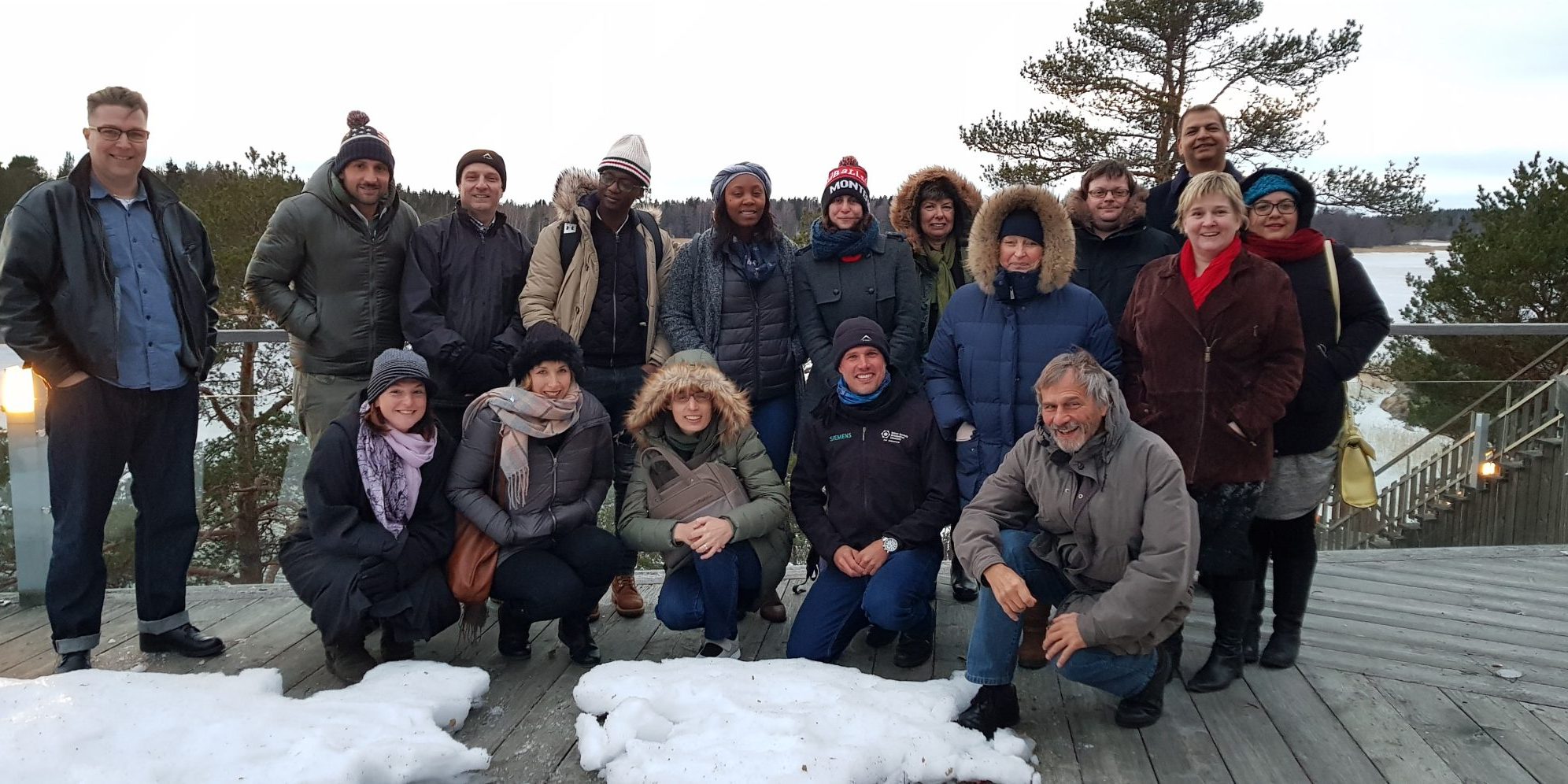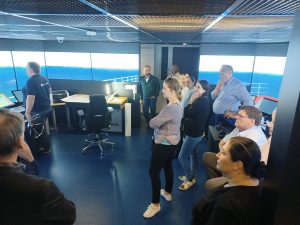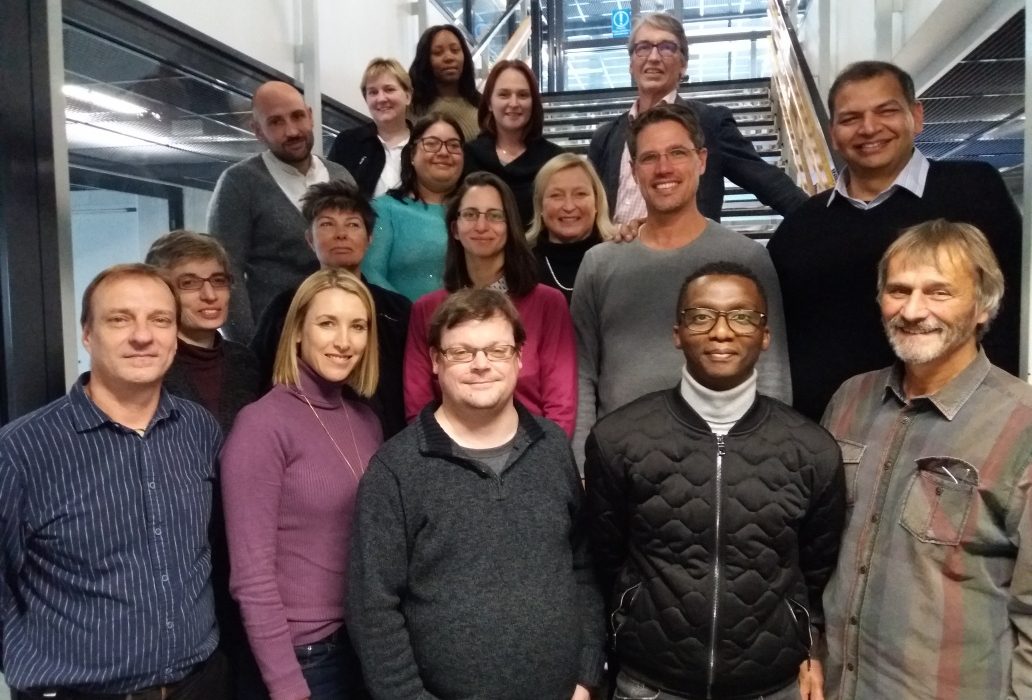Euro-ZA project takeaways
Euro-ZA is a project aiming at capacity building in the field of maritime education. All the six EURO-ZA partners from Europe, UK and South Africa have a long history in maritime education – some European partners over 100 years. This short story outlines the experiences and thoughts that René Pittaway, Samantha Montes, and Meri-Maija Marva have about the project that is ending at the end of July 2022.

Mrs René Pittaway, Nelson Mandela University (NMU)
— My responsibility as the Euro-ZA Project Manager included the running of daily tasks as well as the high-level planning to ensure deliverables and objectives were met. This type of project is the first I have managed, and I have learnt so much both in a professional as well as private capacity.
The project focus area was on curriculum evaluation, pedagogical processes, facilities, and resources between six universities: Nelson Mandela University (South Africa), Cape Peninsula University of Technology (South Africa), Durban Universities of Technology (South Africa), Hochschule Wismar (Germany), Solent University (United Kingdom), and Satakunta University of Applied Sciences (Finland).
The project is ending at the end of July 2022. The findings of the assessment for the individual curricula for marine engineering and nautical science were in short, that in most parts partners were on the same level.
— South African graduates have a similar and strong academic foundation compared to European partners.
From personal point of view, coordinating the project between six institutions made Pittaway realise how important communication and planning is for a project of this size.
—As a partner country, it was good to learn that the way we coordinate projects measured up to our European and UK partners.
Mx Samantha Montes, Cape Peninsula University of Technology (CPUT)
– In partnership of six universities we were developing maritime education. The project allowed me a unique insight as to how each maritime authority interprets the Standards of Training, Certification and Watchkeeping for Seafarers (STCW).

Montes, Senior Maritime Instructor & Manager, explains that the European partners and UK are more progressive in application of the STCW especially with simulation training. Furthermore, non-English speaking countries also focus on communication as part of their curriculum.
– It was also interesting to see, what the relationship was in each country’s maritime cluster: in South Africa we have a more authoritative approach where we follow quite strictly what the authorities prescribe. An open dialogue that we witnessed in Europe and UK seemed to be almost normality there.
Montes was tasked with assisting the CPUT work group with administration when the pandemic started. She was then asked to lead the CPUT team and complete the objectives of the Dissemination and Exploitation work package which meant ensuring that awareness of the project was present and sharing the results thereof.
Ms Meri-Maija Marva, Satakunta University of Applied Sciences (SAMK)
— Covid hit hard on the Erasmus+ funded Euro-ZA project. In Europe and UK the preparedness of distance work is good, where as it was challenging to connect to our South African partners. Many things were on halt because we couldn’t get together around the same table, Meri-Maija Marva says.
According to Marva, Training Manager, differences in the level of digitalisation were – while notable – eventually workable.
— The content of the curricula was in line in most parts across the partners, however, there is also room for improvement. It was also out striking even for the UK and German partners that we don’t have paper back copies anymore in Finland – almost all material is in digital form and can be studied online in Finland, if necessary.
As maritime is traditionally a man-dominated field, Marva was positively surprised to see so many women in good organisational positions.
— I reckon that changes through digitalisation and automation will bring even more opportunities to work ashore in the future, for example. This means that you can have normal family plans without having to be away from home for weeks.

